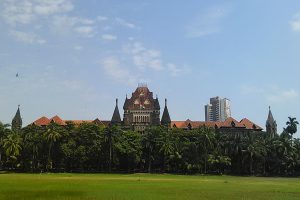Bombay High Court: K.R. Shriram, J., while deciding the appeal filed impugning the order and judgment passed with regard to acquittal for offence punishable under Sections 498A (Husband or relative of husband of a woman subjecting her to cruelty) and Section 306 (Abetment of suicide) of Penal Code, 1860, observed that,
“Cruelty must be of such a degree as contemplated by the Section, i.e., it must be wilful conduct of such a nature as is likely to drive the woman to commit suicide or to cause grave injury or danger to life, limb and health of the woman.”
Prosecution case was that complainant’s daughter Sunita was married to the respondent (accused). Respondent used to ill-treat Sunita and under the influence of alcohol he used to beat her while insisting to bring cash amount of Rs 20,000 from her father (complainant) so that he could start a business.
After sometime respondent started to sell fruits and in the meanwhile Sunita conceived and gave birth to a daughter. On or about 18-09-2001, it was informed that Sunita had committed suicide by jumping in front of a running train.
In view of the above circumstances, PW-1 had lodged the complaint for offences punishable under Sections 498A and 306 IPC.
Supreme Court in its decision, Muralidhar v. State of Karnataka, (2014) 5 SCC 730, held that
“…unless the conclusions reached by the trial court are found to be palpably wrong or based on an erroneous view of the law or if such conclusions are allowed to stand, they are likely to result in grave injustice, Appellate Court should not interfere with the conclusions of the Trial Court.”
Citing the above, Court stated that, it must be kept in mind that there is a presumption of innocence in favour of respondent and such presumption is strengthened by the order of acquittal passed by the trial court.
In Ramesh Babulal Doshi v. State of Gujarat, 1996 SCC (Cri) 972, Supreme Court held that,
“…If Appellate Court finds that there was nothing wrong or manifestly erroneous with the order of the trial court, the Appeal Court need not eve re-appraise the evidence and arrive at its own conclusions.”
Thus, High Court while analysing the present set of facts and circumstances stated that it does not find anything wrong, manifestly erroneous or demonstrably unsustainable in the impugned judgment.
Court noted that,
PW-1 (Complainant) stated that the accused was not doing any work and under the influence of liquor, used to beat Sunita and was insisting her to bring cash from parents for doing some business.
PW-1 admits that in his statement before the police, he has not mentioned that Sunita had gone to his house for delivery and after her delivery she resided with him for 15 days. He also admits that in his statement to the police, he has not mentioned that during that stay Sunita had informed him about the ill-treatment and demand for cash by accused.
DW-1 in whose quarters Sunita and accused were residing stated that in her presence no dispute took place between Sunita and accused, nobody used to visit their house and Sunita never complained about accused.
On perusal of the above, Court stated that apart from the general statements by PW-1, there was nothing on record to show that accused used to beat Sunita under the influence of alcohol.
Stating the above, bench gave another point of significance in such cases that,
“.. It is to be kept in mind that it is easy to accuse somebody of ill-treatment after someone dies, but it will not be wise to convict somebody based on such general statements.”
“It is settled law that under Section 498A of IPC, every cruelty is not an offence.”
With regard to abetment, Court stated that, in order to amount abetment, there must be mens rea or community of intention. Without knowledge or intention, there can be no abetment and the knowledge and intention must relate to the act said to be abetted, i.e. suicide, in this case. To constitute ‘abetment by instigation’, there must be a direct incitement to do the culpable act.
Thus, in Court view, no evidence is found to suggest that Sunita committed suicide because of ill-treatment or cruelty by the accused. There is also no evidence whatsoever that the accused by their acts intended Sunita to commit suicide.
In view of the above, order of acquittal need not be interfered with. [State of Maharashtra v. Shri Balu Ravji Abhang, 2020 SCC OnLine Bom 307, decided on 20-02-2020]

